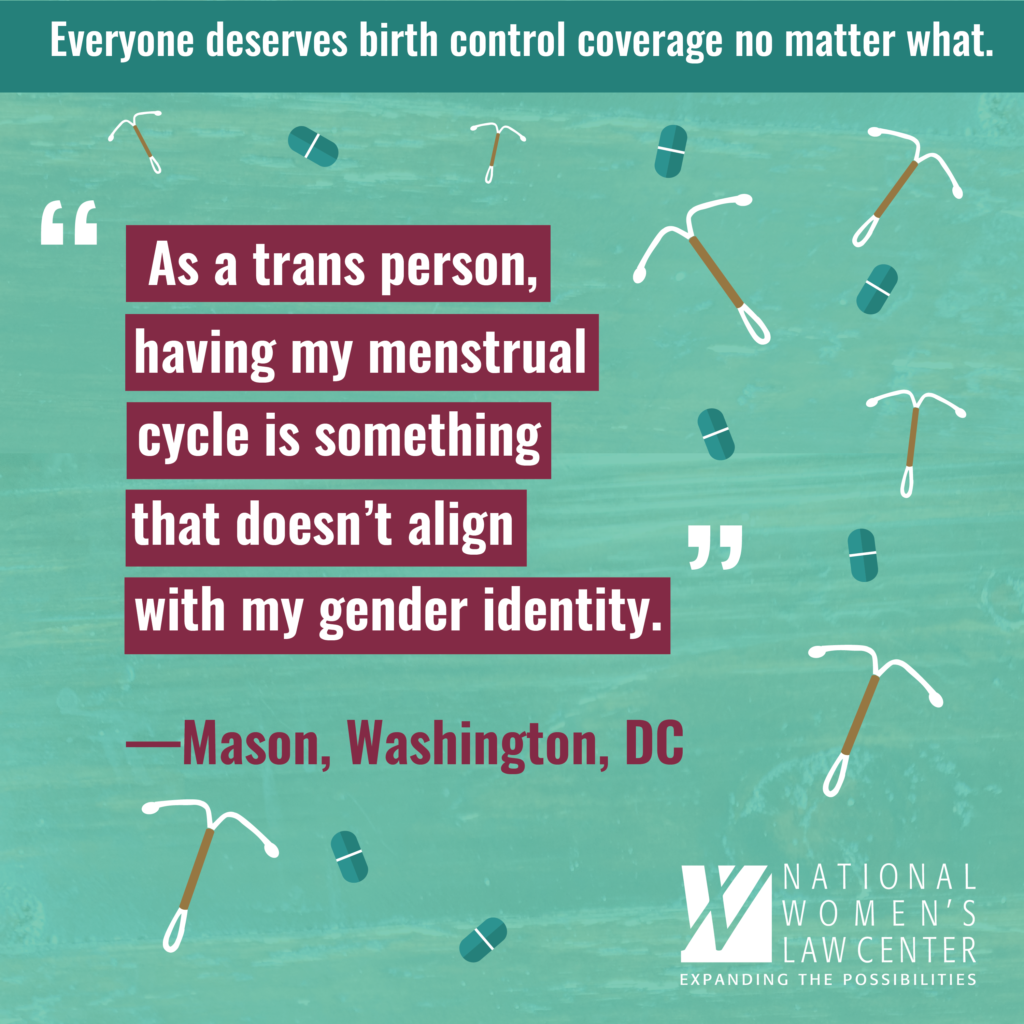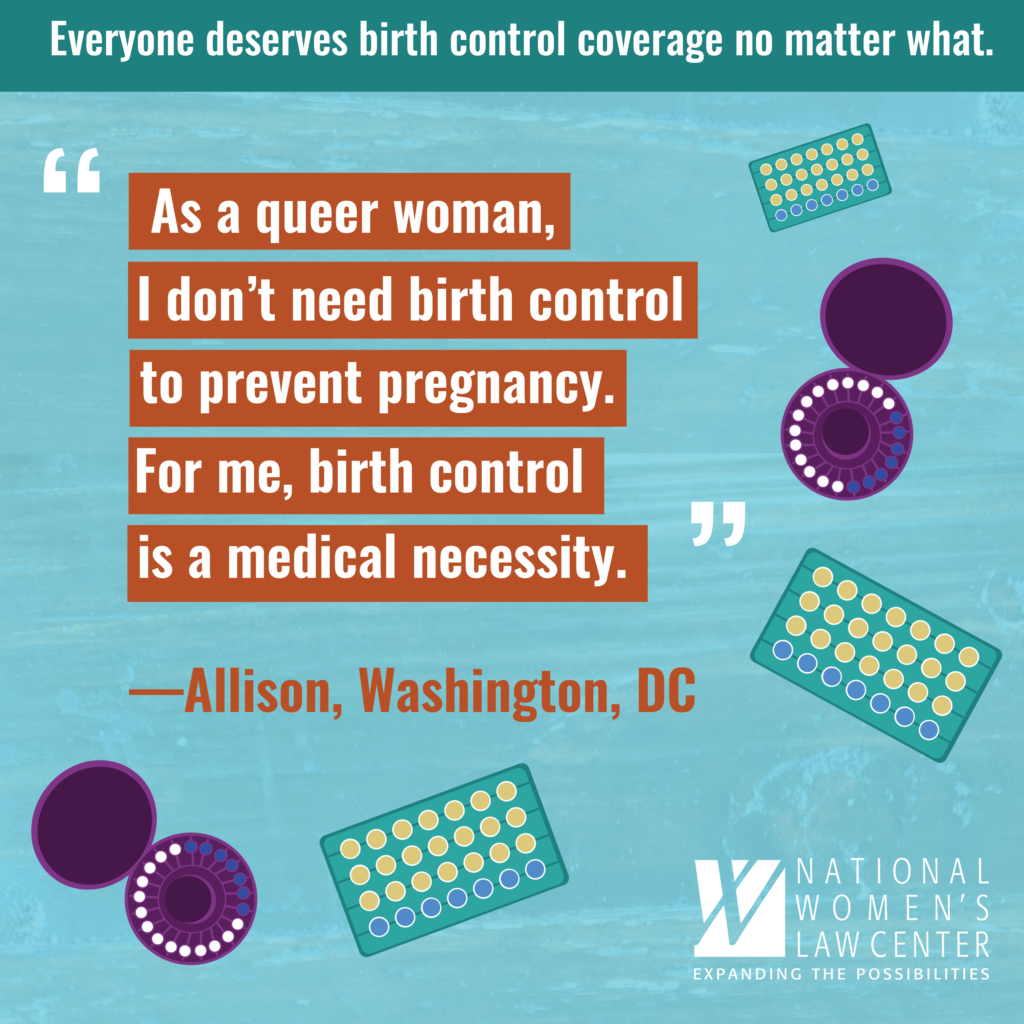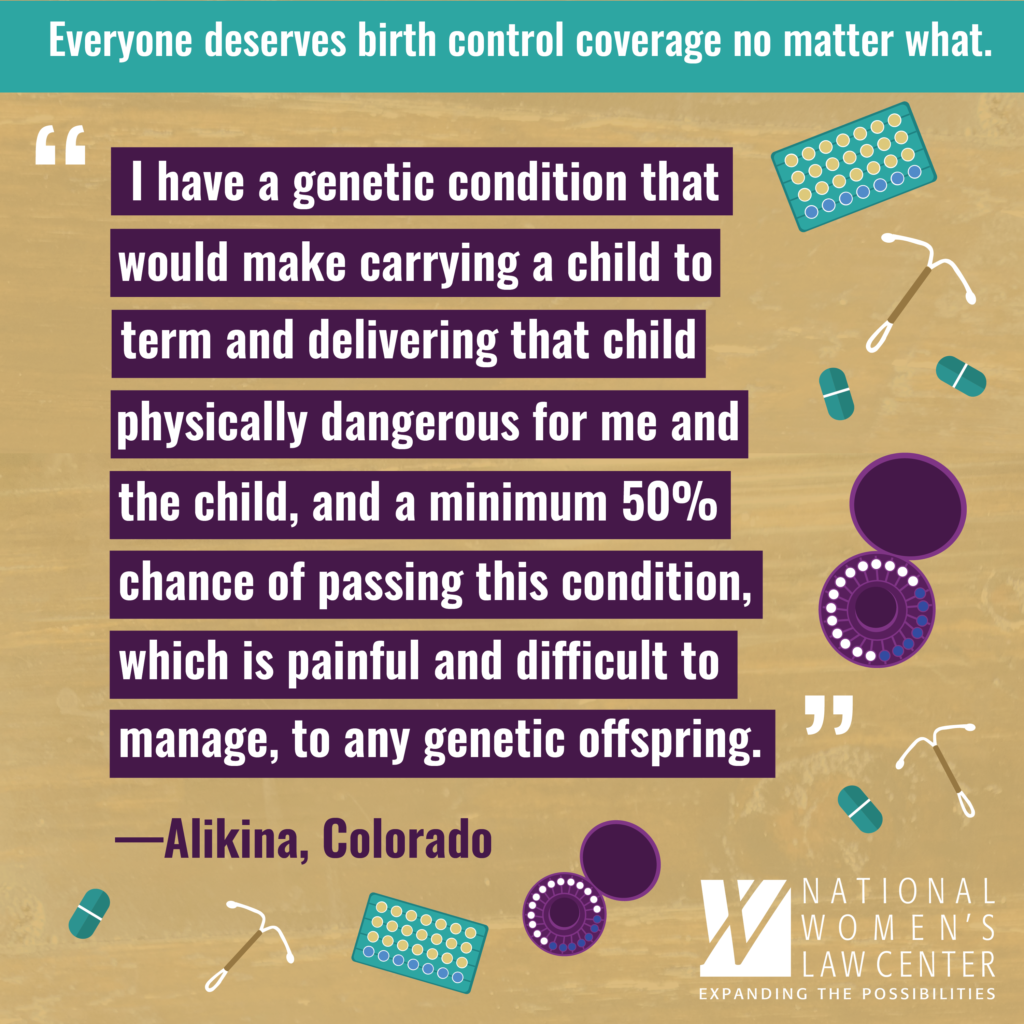“As a trans person, having my menstrual cycle is something that doesn’t align with my gender identity.”

Mason* | Washington, DC | Asian | They/them
Mason had been scared of being denied health insurance coverage for medication in the past. When they were transitioning (Mason identifies as non-binary), they expected to face some kind of pushback from their insurance company in covering testosterone, which would aid in their transition. But Mason was able to get their testosterone covered, no problem. The same can’t be said for Mason’s experience trying to get birth control.
Like a lot of people, Mason had more than one reason for wanting to use birth control. They wanted to stop their menstrual cycle because having a menstrual cycle didn’t align with their gender identity. They didn’t want to get pregnant. They were experiencing low energy and extreme exhaustion whenever they got their period–which happened for 10 days out of every month. It was interfering with their job. Mason took a long time making the decision to get a hormonal IUD so by the time they decided to go through with it, they were ready. Ready to stop experiencing terrible side effects from their period, ready to stop being worried about getting pregnant, and ready to stop having a monthly occurrence that violated their gender identity.
“Once I had made the decision, I accepted that the process would be I would go to my primary care provider, take whatever steps they needed, and then go in and have my IUD inserted,” Mason says. “I didn’t think at all about the option for my insurance company to give me trouble.”
But when Mason went to get their IUD, they were denied. They submitted an appeal letter, and were denied again. The insurance company told Mason that the IUD Mason wanted wasn’t covered, which confused Mason, since they were familiar with the ACA birth control benefit that should’ve allowed them to get birth control with no out-of-pocket costs. A few weeks later, Mason got an official denial letter in the mail. Buried deep in the letter there was one single mention of a requirement for a letter from Mason’s doctor explaining Mason’s medical need for birth control. Mason had never heard of this requirement before–not even during their appeals process four months of back and forth, Mason was finally able to get their IUD covered.
During those four months, Mason continued to experience debilitating symptoms that made it hard to do their job, let alone have a social life. And every month, when they got their period, they were reminded of this discord between their period and their gender identity. “As a trans person, having a menstrual cycle is something that doesn’t align with my gender identity,” Mason says.
In the end, they say: “Even though I work for a very progressive employer and have a very good insurance plan, I still had a lot of difficulty accessing birth control. Things are bound to be way harder for people who have additional obstacles put in their way.”
























